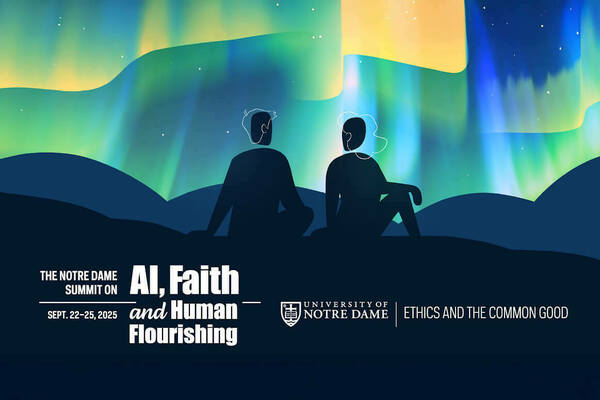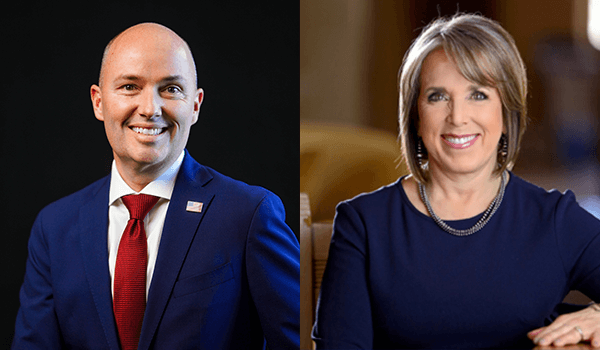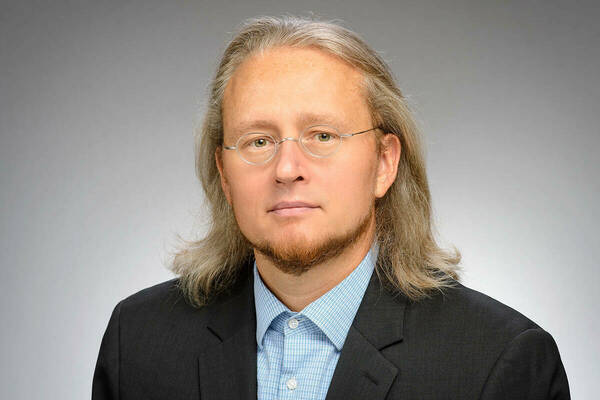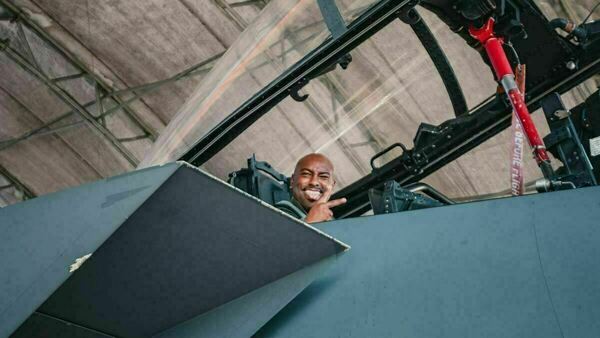ND experts on the canonization of Carlo Acutis
The canonization of Carlo Acutis, the first millennial saint in the Catholic Church, will take place on Sunday, September 7. Acutis, an Italian teenager who died from leukemia in 2006, has been celebrated for his devotion to the Eucharist and his use of technology to promote the Catholic faith. He created a website that documented Eucharistic miracles and Marian apparitions and is widely regarded as a role model for young people in the Church.
As the Church awaits the ceremony in St. Peter’s Square, where Pope Leo XIV will formally declare Acutis a saint, University of Notre Dame experts Kathleen Sprows Cummings, Brett Robinson and Timothy O’Malley reflect on his life and his path to sainthood.
“Canonization may be fundamentally about holiness, but it is also about relevance,” said

Kathleen Sprows Cummings, a professor of American studies and history. “As such, new saints often reveal as much about the priorities of the people promoting them as they do about the holy people themselves.”
Cummings, who focuses her research on Catholicism in the United States, as well as the history of women and American religion, said that Acutis’ story is tailor-made for this moment in at least three senses:
“As a teenager, he offers the Catholic Church an opportunity to connect to generations of young people that have become increasingly disengaged from practicing their faith,” she said. “As a fervent devotee of the Eucharist, he provides an opportunity to provide instruction about a sacrament that, recent polls reveal, is misunderstood by many of the faithful.
“Finally, as a ‘gamer saint,’ Carlo’s utilization of technology as a tool of evangelization is tremendously reassuring in an age of anxiety about the corrosive effects of social media and AI. The fact that his canonization will take place during a Holy Year dedicated to the theme of hope, when Catholics are exhorted to renew their faith, further magnifies his appeal.”
Cummings, the author of “A Saint of Our Own: How the Quest for a Holy Hero Helped Catholics Become American,” also cautioned that although canonization is an enormously complex process, it “inevitably simplifies a life, paring it down to a single story that can be ‘enshrined’ in the canon of the saints.”
“For a cause to succeed, a candidate’s story must often be shoehorned into a preexisting narrative arc that doesn’t leave much room for complicated or contradictory details. This doesn't mean a saint isn't holy, but it does mean that we don't always learn much about what made them human."

Brett Robinson, associate director for outreach at the McGrath Institute for Church Life, agreed, noting that although Acutis will be the patron saint of the internet and is associated with technology — the prevailing narrative does not entirely fit.
“I think initially the narrative was that he was a digital native and he was a typical teenager who was very much into video games and the internet,” said Robinson, who is also an associate professor of the practice. “And it’s a little more nuanced than that. Yes, he was familiar with and used technology, but he was an example of the ways we can use them with wisdom, prudence and virtue.
“Carlo demonstrates what it means to be in the world, but maybe not of the world. That’s something that’s more challenging now, given all the distractions of our culture, but it is possible.”
In that way, Robinson added, Acutis offers hope to young people in particular, many of whom struggle with mental health issues associated with a cultural shift toward social media and technology.
“For a lot of the Church’s history, saints were these elevated, austere figures, and Carlo is one of the first young, contemporary saints who did like sports and video games, but also loved the Eucharist and the Church and God,” he said. “And that makes his story accessible and inspirational. Here’s this individual who in the midst of our modern world was able to find a contemplative peace and have a deep, intimate relationship with the Lord through the Eucharist — and then also express that through the channels everyone uses, like the internet.”

Timothy O’Malley, associate director for research at the McGrath Institute and academic director of the Notre Dame Center for Liturgy, stated that although Acutis’ relative “fast track” to sainthood is part of the reason he is so relatable, he doesn’t anticipate the Church fast tracking other causes.
“There is close attention paid to the dangers of fast tracking, and I think that it gets much more dangerous when it is a very famous or public person,” O’Malley said. “That wasn’t Carlo — he was an unknown person to most of the world before his passing. But what happened afterward was an immediate devotion. From the time he was buried in Assisi, there was devotion to him and miracles attributed to him. So, it won’t necessarily become normal, but the speed of his canonization is not surprising for the kind of person he was and the way he resonates with us.
Acutis lived a normal, somewhat ascetic life, O’Malley added.
“He gave to the poor. He went to daily Mass and had a love of the Eucharist. He limited screen time. He liked going hiking and being with his friends,” O’Malley said. “Even though he was this extraordinary spiritual writer — seemingly having insight beyond what any 15-year-old should have — I think a lot of his life is something that we can understand and can follow.”
Contact: Carrie Gates, associate director of media relations, 574-993-9220, c.gates@nd.edu
Latest ND NewsWire
- Notre Dame to host summit on AI, faith and human flourishing, introducing new DELTA frameworkThe Institute for Ethics and the Common Good and the Notre Dame Ethics Initiative will host the Notre Dame Summit on AI, Faith and Human Flourishing on the University’s campus from Monday, Sept. 22 through Thursday, Sept. 25. This event will draw together a dynamic, ecumenical group of educators, faith leaders, technologists, journalists, policymakers and young people who believe in the enduring relevance of Christian ethical thought in a world of powerful AI.
- Notre Dame Democracy Initiative hosts bipartisan conversation with Western state governorsTwo Western state governors known to work across the aisle on policy issues such as water, housing and energy will visit the University of Notre Dame for a fireside chat about how Western state pragmatism can serve as a model for the country to overcome polarization.
- In new research, Roy Scranton explores climate change and the limits of human progressIn his most recent book, “Impasse: Climate Change and the Limits of Progress,” Scranton, an associate professor of English, defines the impasse he sees as “not only political and institutional, but cognitive, existential and narrative” and asserts that the only path forward is through embracing what he terms ethical pessimism. “A lot of people confuse pessimism with nihilism, apathy and despair,” Scranton said. “But pessimism is actually about recognizing our limits, letting go of unrealistic goals, finding solidarity in the fact of human suffering and doing what you can now, not in some utopian future.
- Notre Dame MBA launches deferred admission programThe Notre Dame MBA Deferred Admission Program allows candidates with little or no work experience, including college seniors, to secure admission before reaching the recommended three years of work experience to enroll.
- ‘Prebunking’ false election claims may boost trust in electionsIn recent years, democracies worldwide have seen a growing erosion of trust in election outcomes and institutions, driven in part by fears of widespread fraud. New Notre Dame research finds that “prebunking” — providing accurate information before false claims spread — boosts trust in elections more effectively than traditional fact-checking.
- MBA student and alumnus to take part in Fighting Irish flyoverNotre Dame MBA student Maximo Navarro takes flight for the Fighting Irish football season opener.













